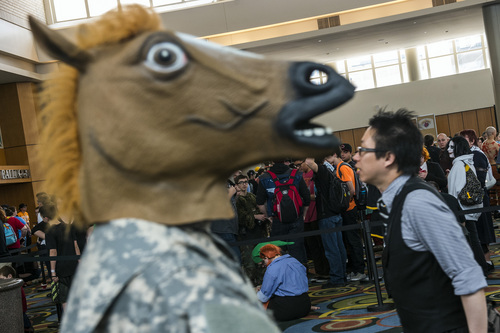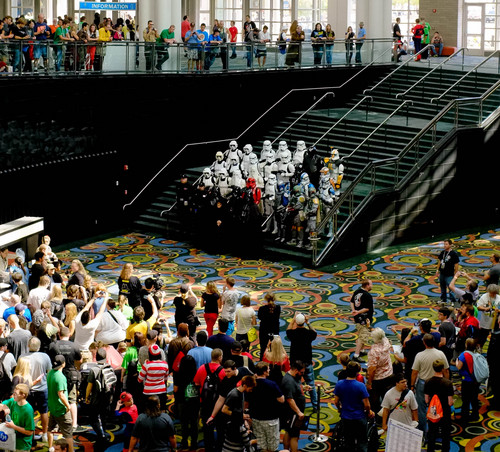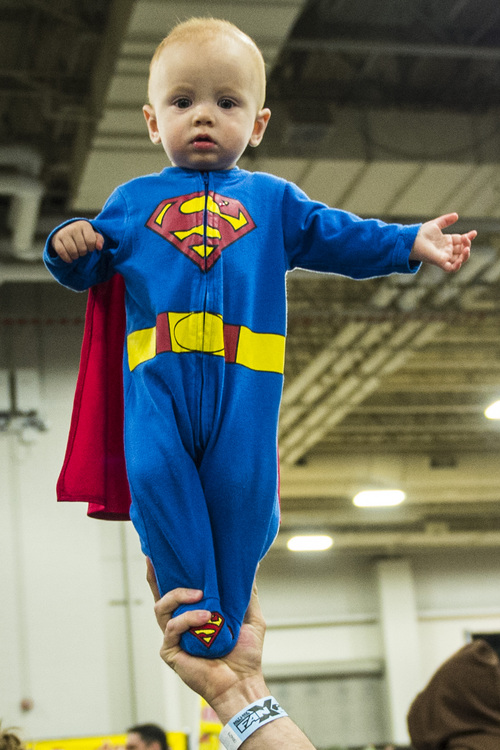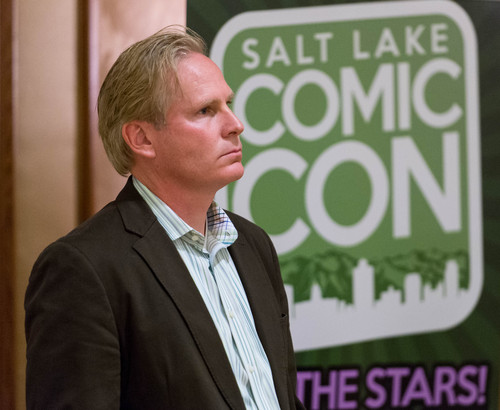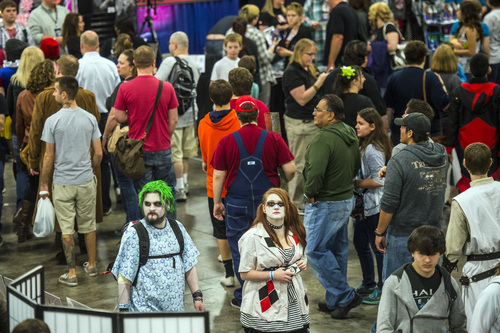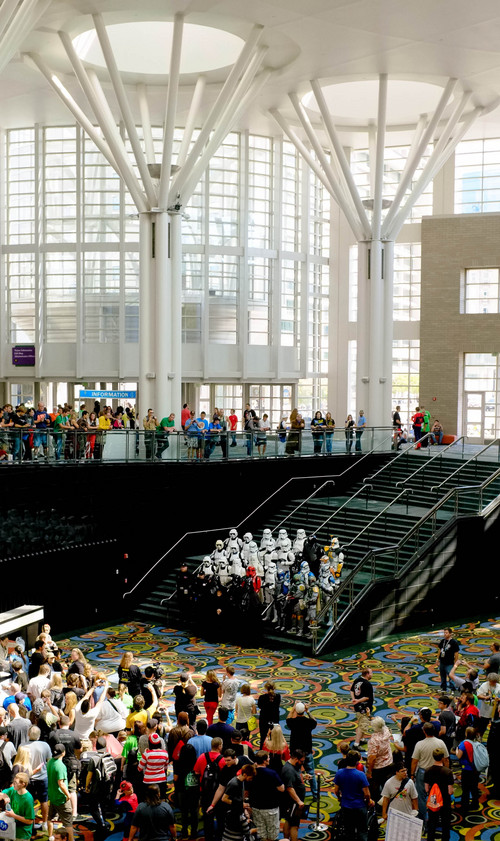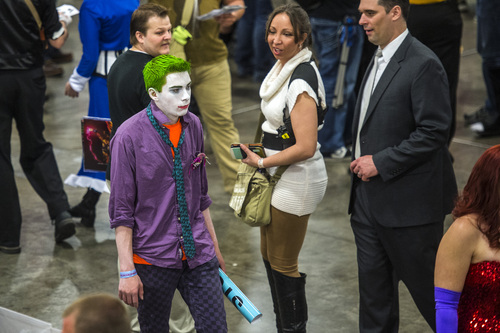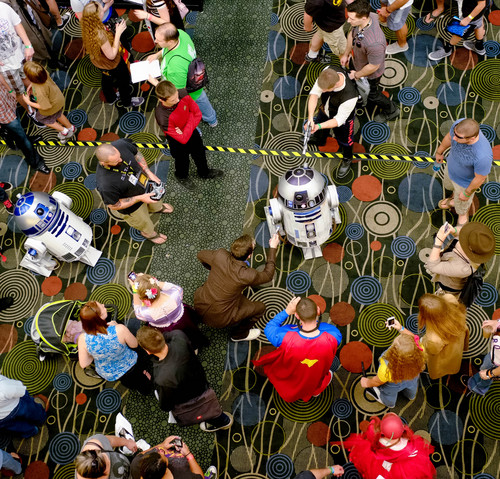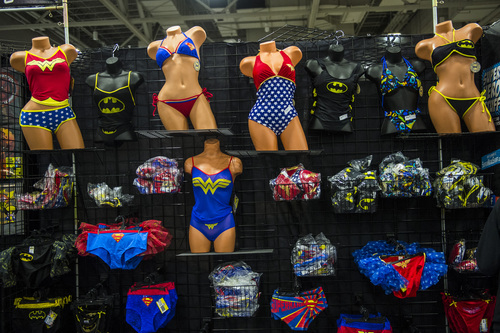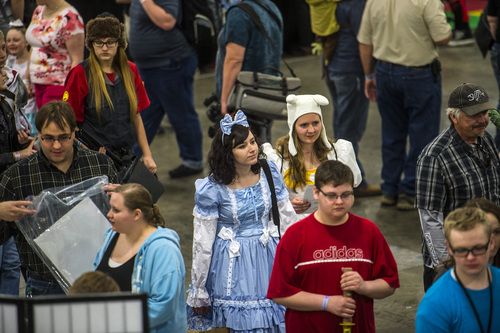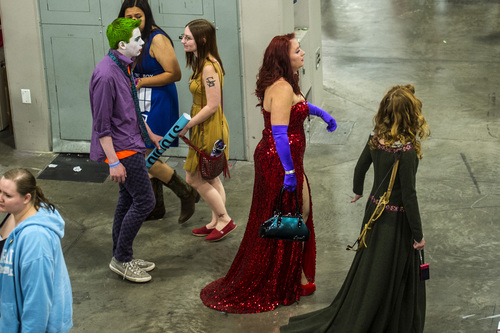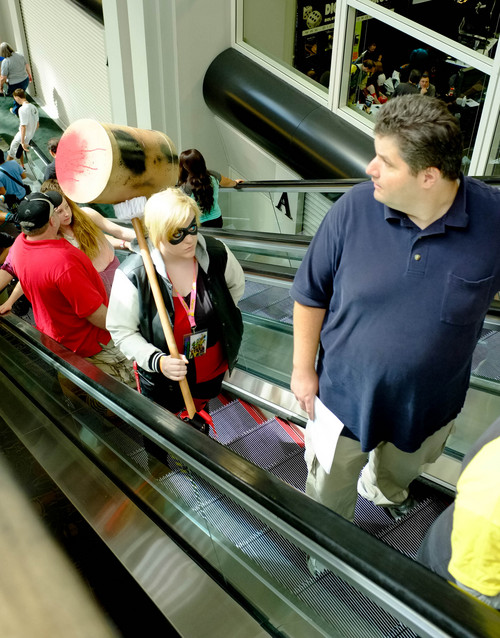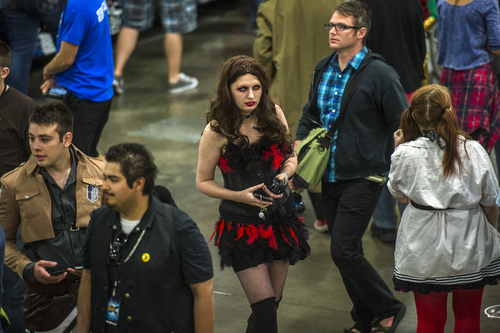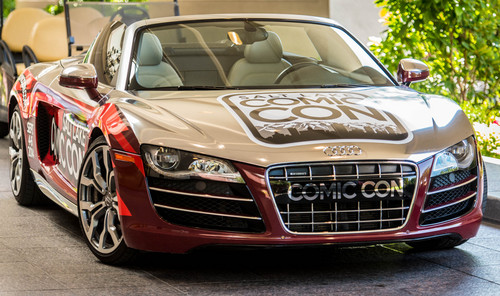This is an archived article that was published on sltrib.com in 2014, and information in the article may be outdated. It is provided only for personal research purposes and may not be reprinted.
San Diego Comic-Con's beef with Salt Lake Comic Con's similar name has escalated, with the flagship pop culture convention formally filing a lawsuit against the burgeoning newcomer.
San Diego filed its complaint Thursday in U.S. District Court in Southern California, seeking both damages and an injunction. The suit alleges Salt Lake's use of "comic con" in its name is trademark infringement and constitutes a "false designation of origin," confusing the public into thinking that the two conventions are affiliated. San Diego alleges that the Utahns have been capitalizing on its "creativity, ingenuity and hard work" through the unauthorized use of San Diego's trademarks to promote their own convention.
"[Salt Lake Comic Con's] actions have caused, and will continue to cause, irreparable harm to [San Diego Comic-Con] and to the public which is deceived as to the source and sponsorship of [San Diego's] goods and services," the complaint reads. They had sent a cease-and-desist letter to Salt Lake last month, demanding the convention change its name.
Salt Lake Comic Con's cofounders formally responded this week with a definitive no, and are prepared to defend themselves against a lawsuit.
"It's pretty aggressive," Salt Lake Comic Con cofounder and chief marketing officer Bryan Brandenburg said of the lawsuit on Friday. "We really feel like they don't have a basis for this. We thought there might be some more ammunition with a formal lawsuit, but they still don't have a leg to stand on."
Besides rehashing a complaint that the Salt Lake organizers drove a customized Audi near San Diego's convention that promoted its own show, the lawsuit also points to Brandenburg saying in an April interview that organizers knew "the term 'comic con' is kind of like Xerox, it's a generic brand... but we knew that there was a brand equity associated with the phrase that we could capitalize on, being the only comic con in our market."
San Diego also alleges that Salt Lake used marketing campaigns designed to deceive and confuse people, such as the phrase "Comic-Con is coming to Utah" to imply an association with San Diego's event. Brandenburg refuted that Friday, adding that they never used the hyphen because they knew they couldn't.
As Salt Lake's organizers see it, this legal battle isn't just between them and the flagship convention; it's a threat to the dozens of other comic book conventions around the world that also use the "comic con" name. Brandenburg has asserted that if San Diego wins this case, it has a precedent to do this to others.
"If they win with us, they win with everybody," he said.
For instance, the New York Comic Con is the second-largest in the country and clearly uses the name, as do 24 other conventions nationwide that are organized through Wizard World. Salt Lake has been in touch with other convention organizers, most of whom have rolled their eyes at San Diego's action, cofounder Dan Farr has said. He has declined to name which conventions take their side, not wanting to make them a target.
However, the whole issue should be settled, Farr figures, if the U.S. Patent and Trademark Office grants them their application to trademark "Salt Lake Comic Con," which they filed several days after receiving the cease-and-desist letter. Such applications take a long time — at best, six months — but "hopefully the government will settle that so we don't have to go to court over it," he said on Wednesday.
Technically, San Diego has the hyphenated version of "Comic-Con" trademarked, but not "comic con." However, its legal team argued in the cease-and-desist letter that the similarity of "Comic Con" in another event's name, without the hyphen, has confused people into thinking the event is somehow associated with San Diego's convention.
"In fact, we are aware of multiple instances where persons have incorrectly believed that the Salt Lake Comic Con convention was a [San Diego Comic-Con] event," the letter from San Diego Comic-Con reads. The letter adds that the San Diego group would be fine with Salt Lake Comic Con expanding the last word to Convention, or reusing the title for its spring event, FanXperience, instead.
The relationship between Salt Lake and San Diego has been eroding for some time.
When Salt Lake announced FanXperience, the organizers received a call from San Diego's team members, who were upset that it was scheduled for the same April weekend as WonderCon (another event they put on in Southern California). Brandenburg, defending the choice, has pointed out that the weekend was the only one Utah organizers could book at the Salt Palace Convention Center, and WonderCon did not have any publicized dates yet.
And, most recently, the San Diego organizers were less than thrilled that their Salt Lake counterparts wanted celebrity guests to take photos with an Audi, decorated with Salt Lake promotional material, near the San Diego Comic-Con when the event was in full swing last month. When the cease-and-desist letter arrived that weekend, Brandenburg said, there was no saving the relationship — and despite knowing San Diego's feelings about the car, organizers went ahead with the plan anyway.
Other convention organizers, celebrities and online commentators have sided with Salt Lake in this matter, the co-founders said. As far as Brandenburg sees it, they have won in the court of public opinion.
The convention is scheduled for Sept. 4-6 at the Salt Palace Convention Center. The cofounders have assured that the show will go on, despite a lawsuit.
An attorney representing San Diego Comic-Con was not immediately available.
Twitter: @mikeypanda


